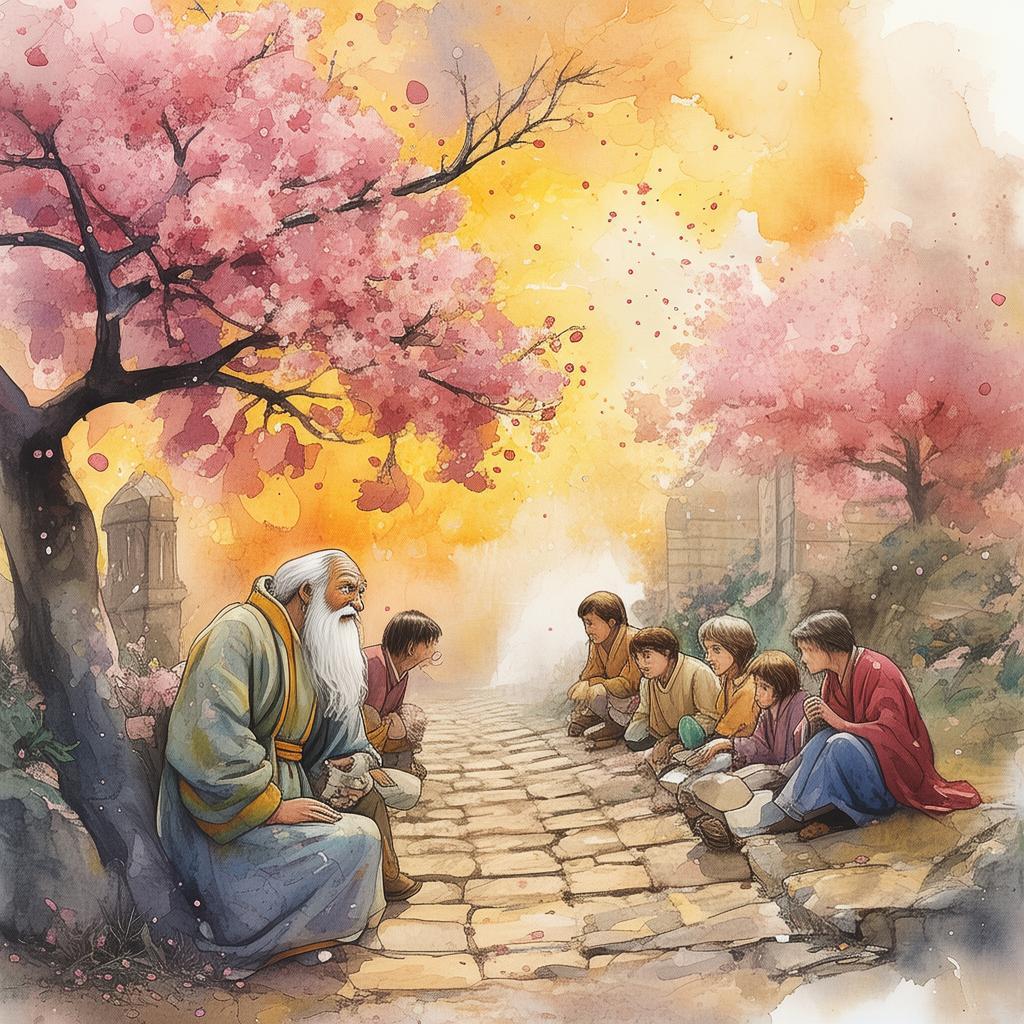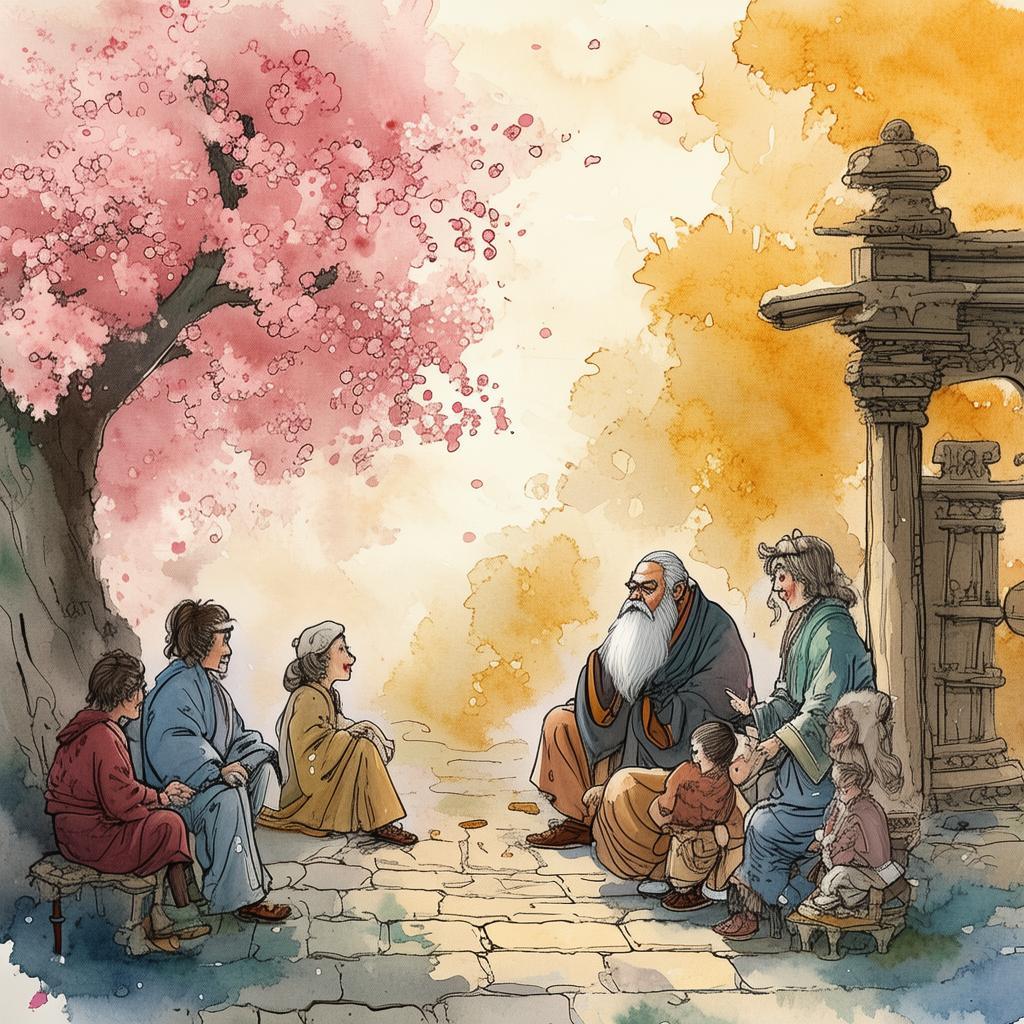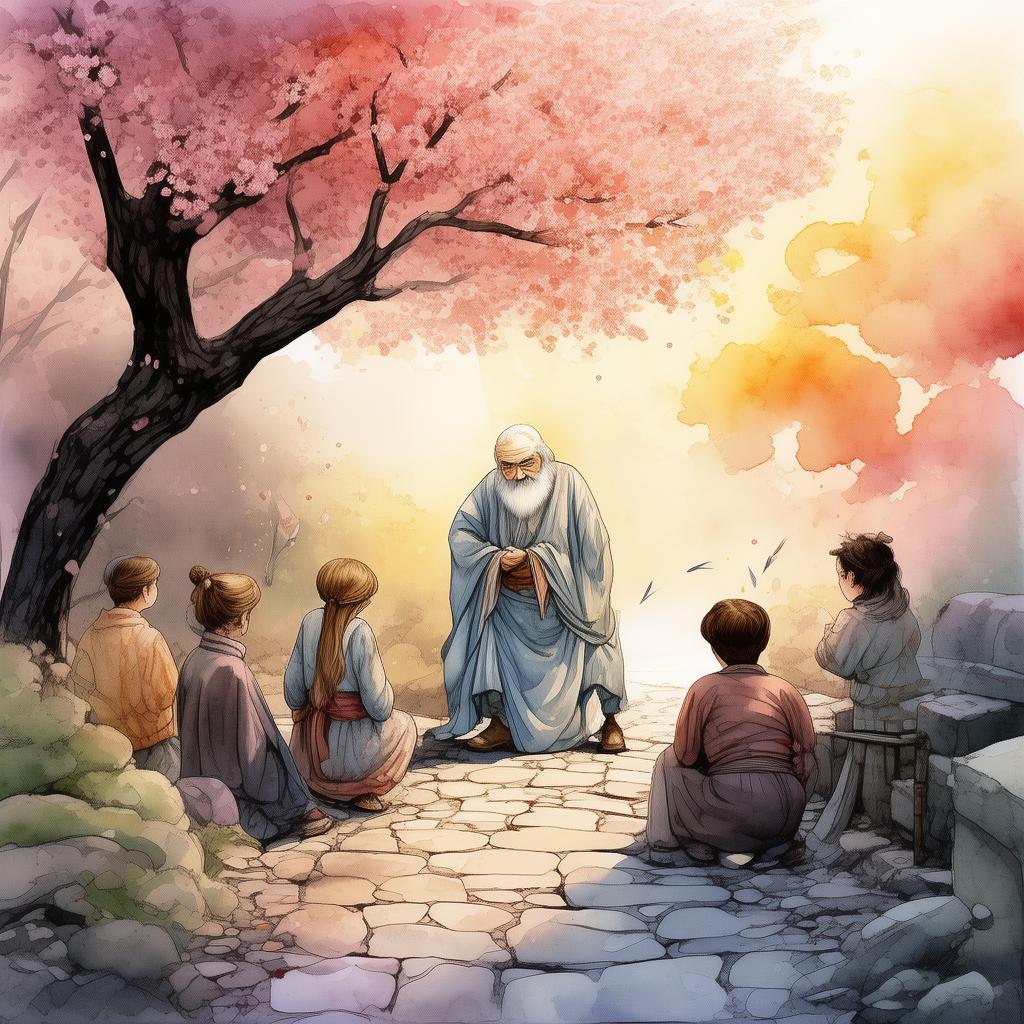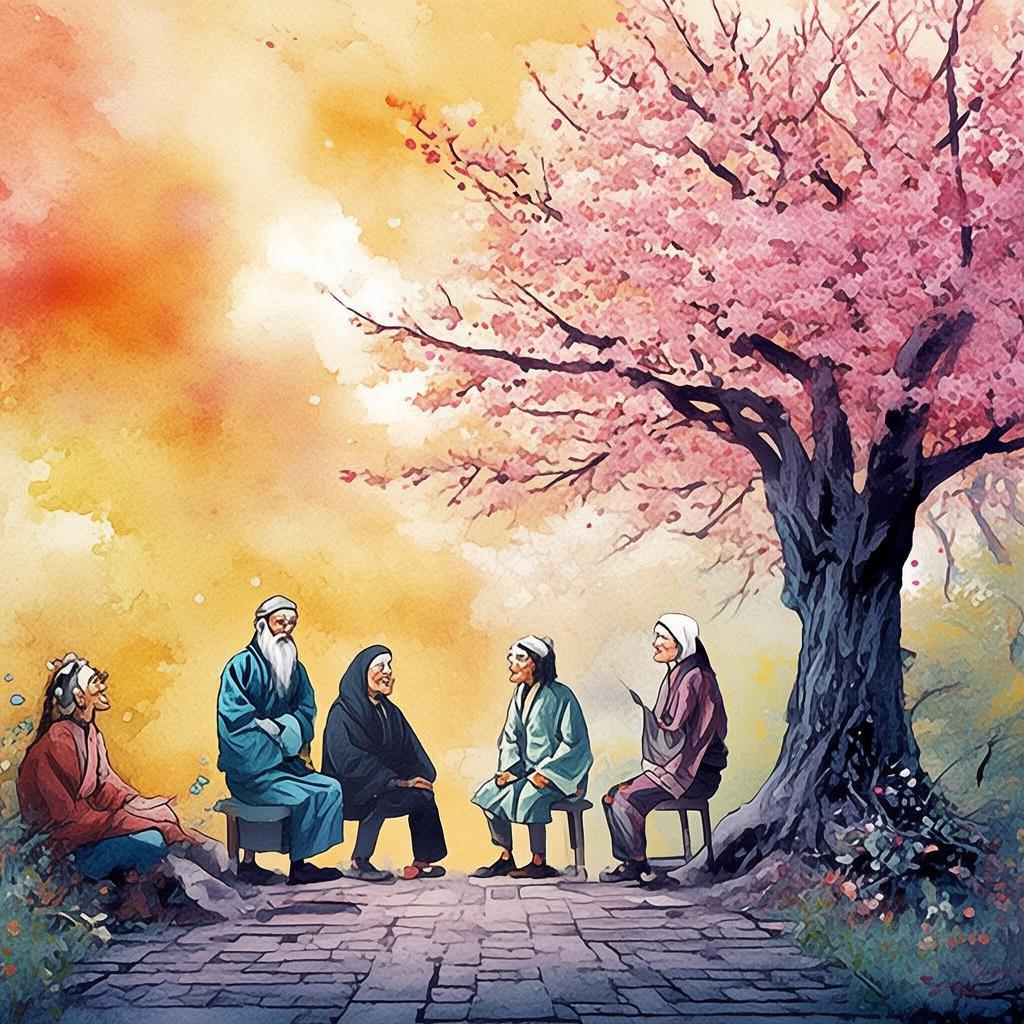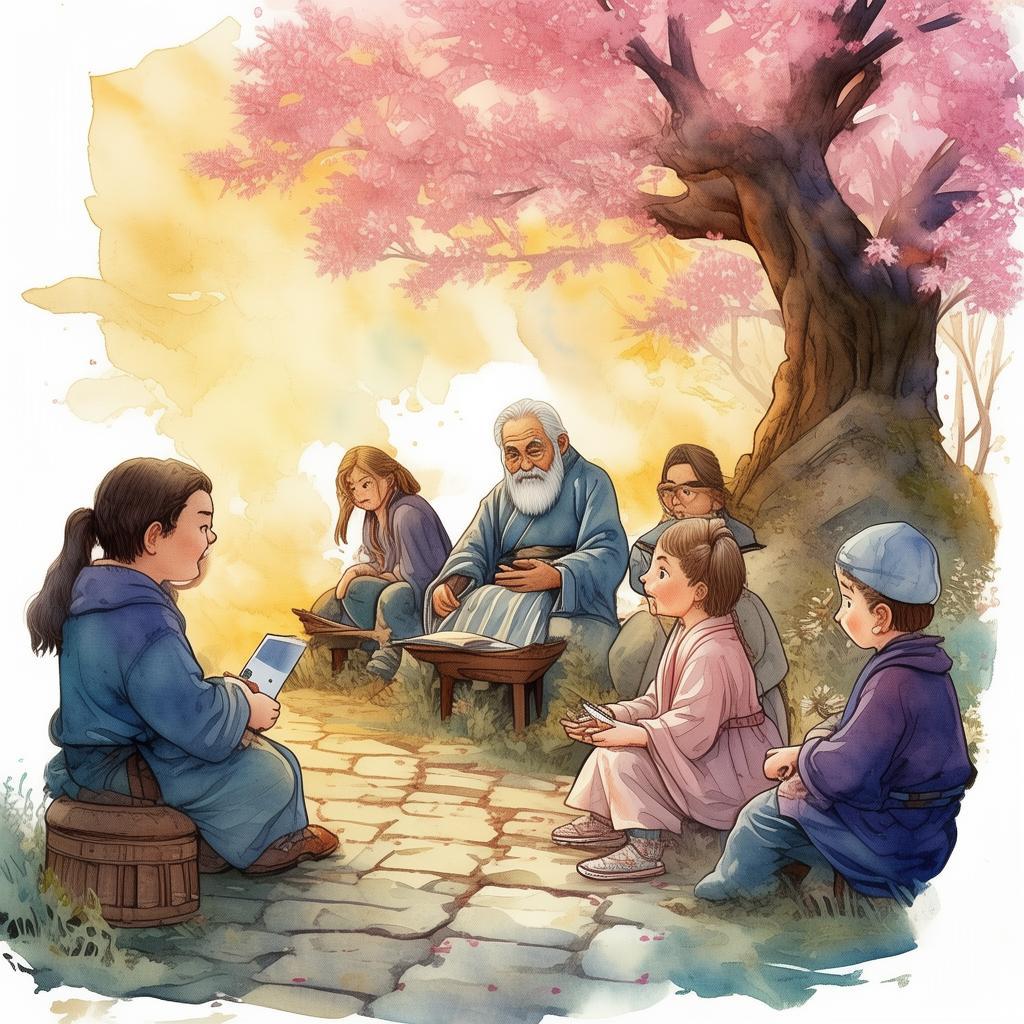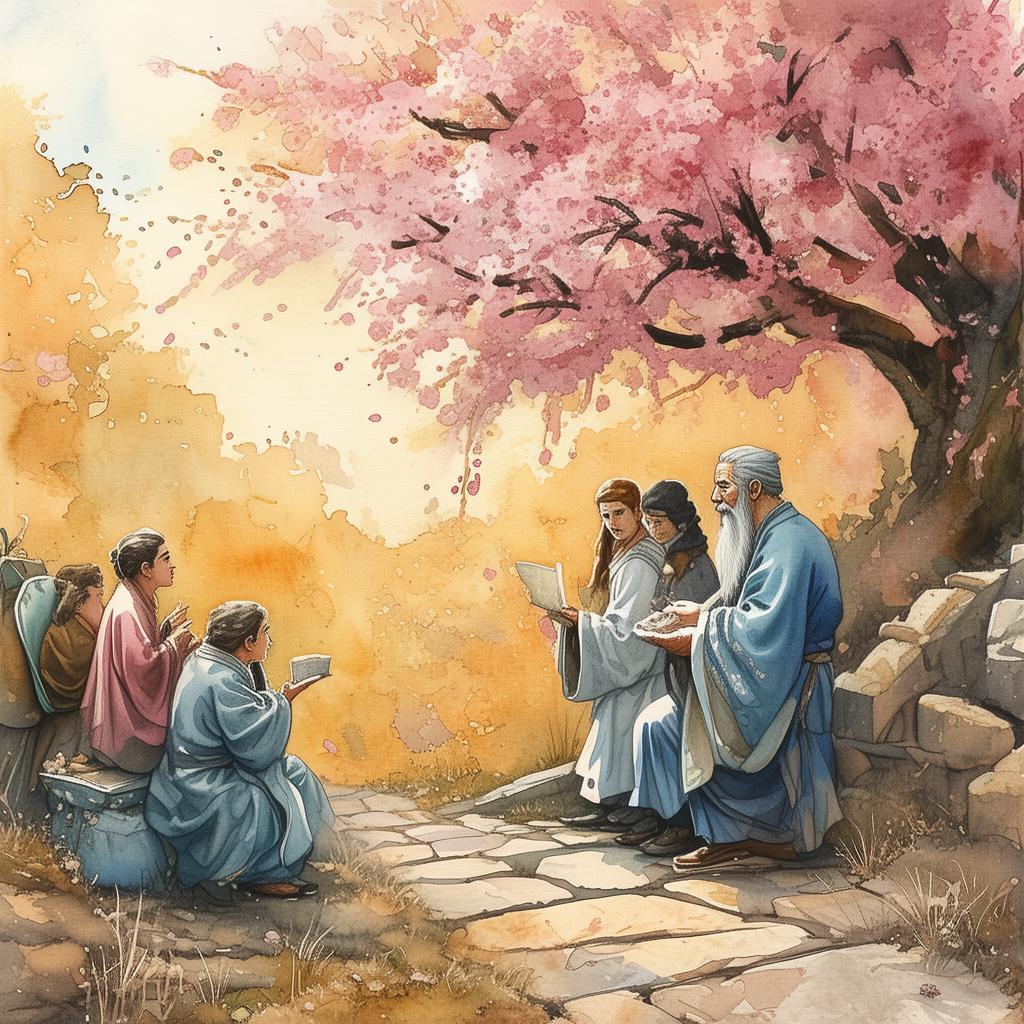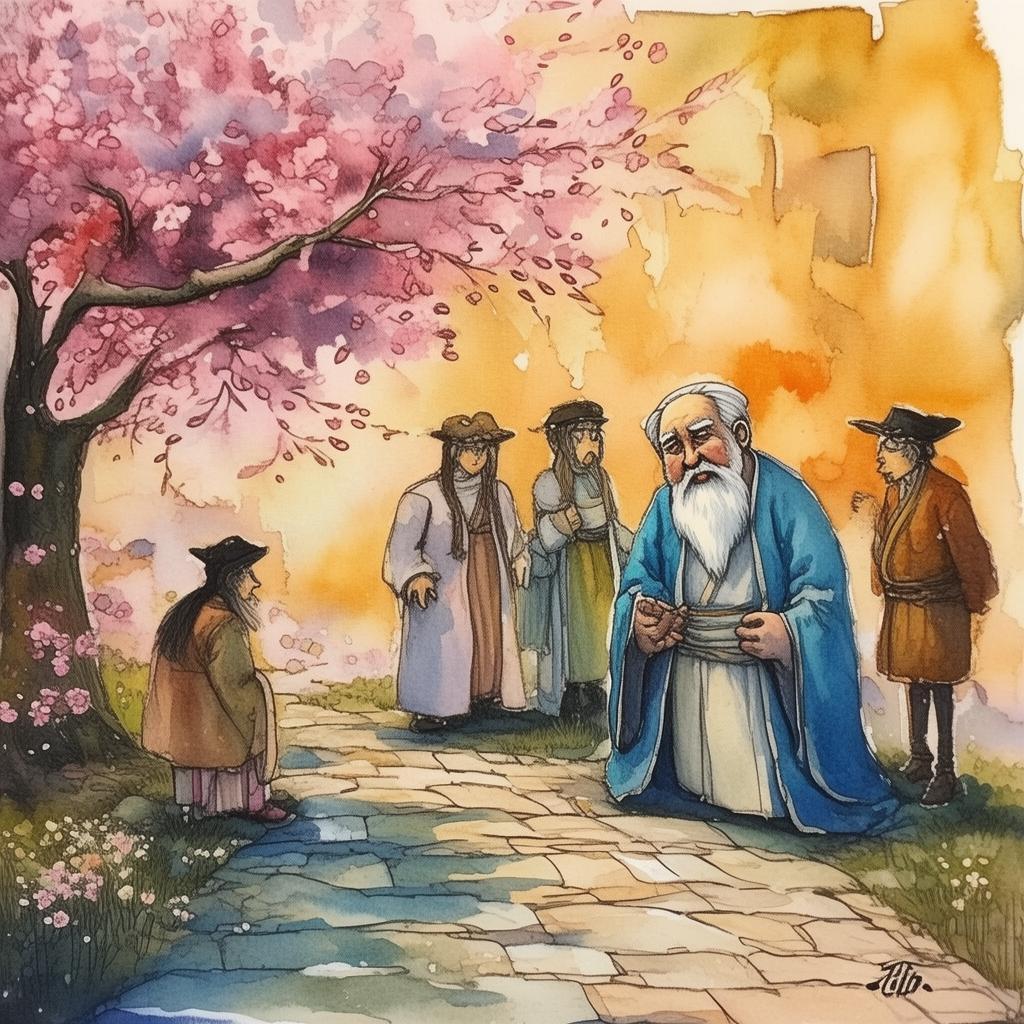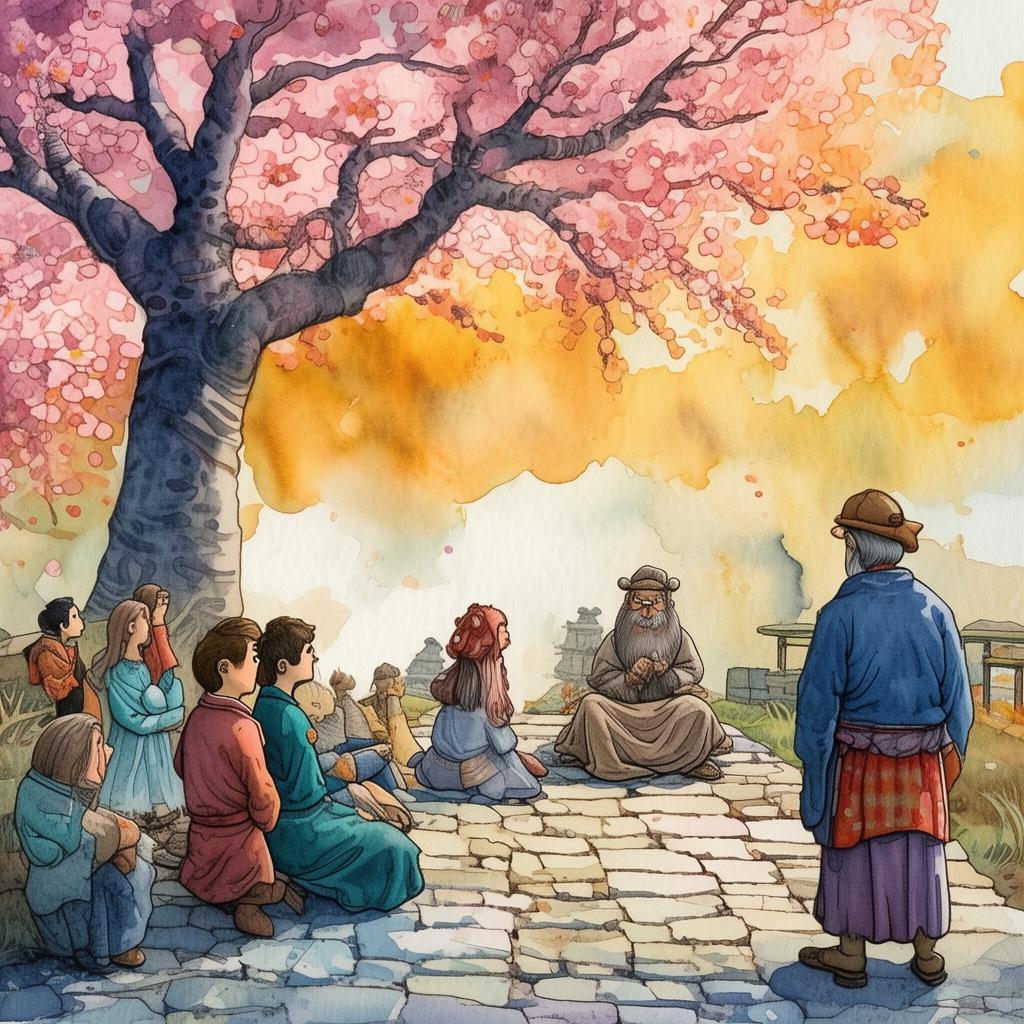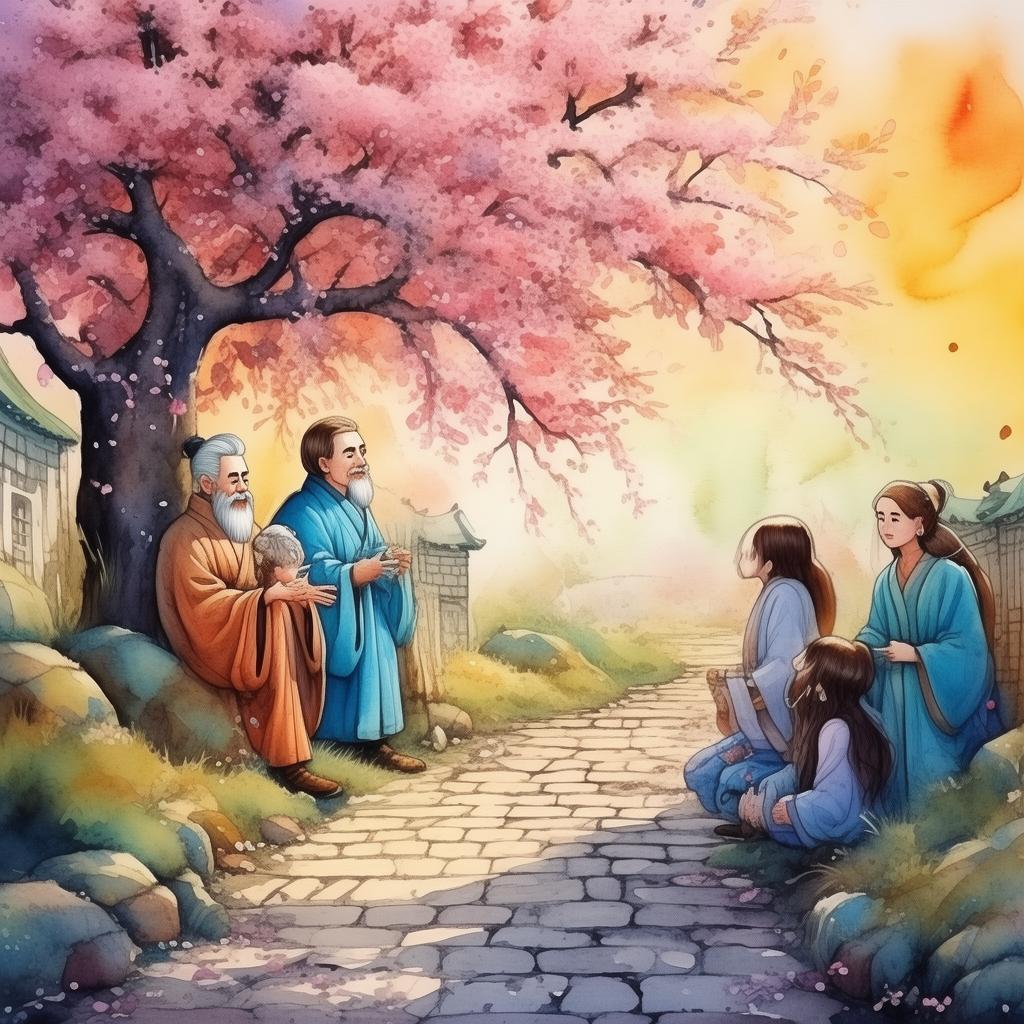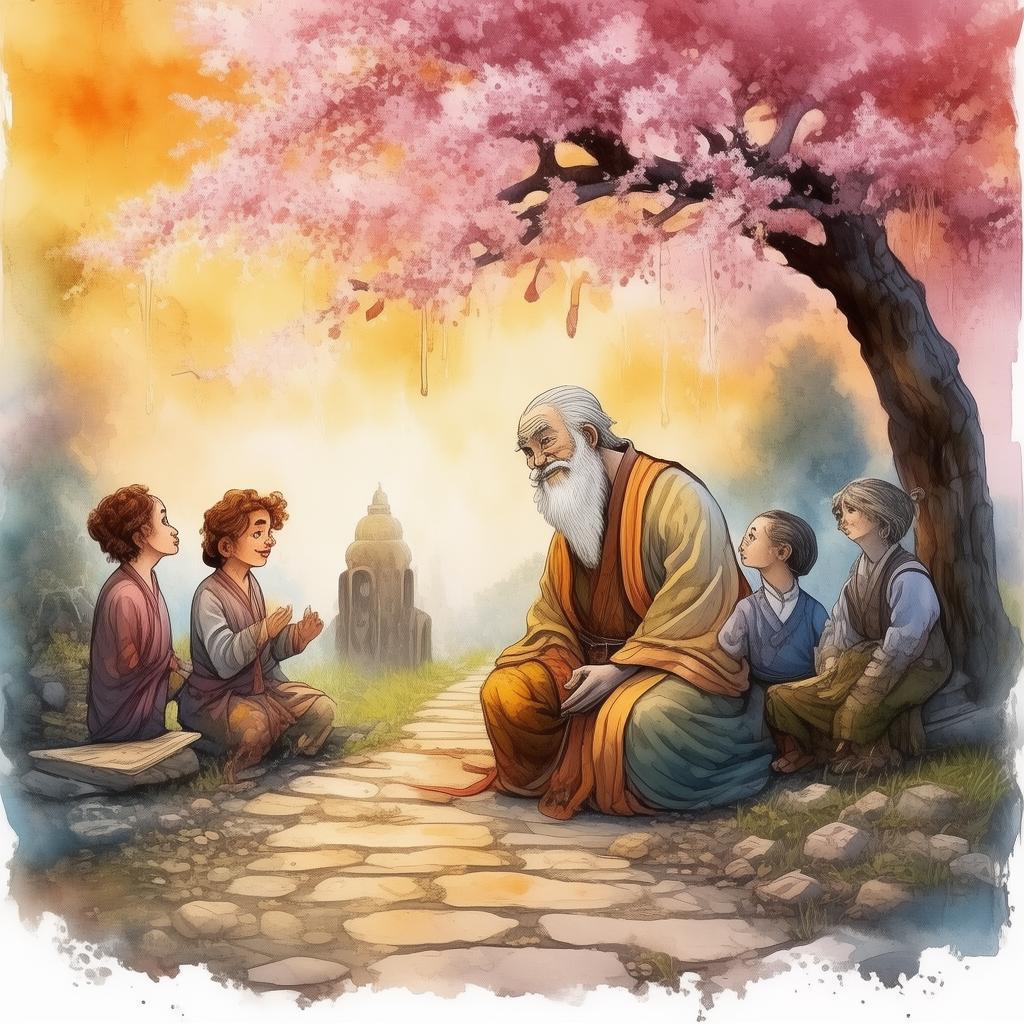The Lament of the Wandering Bard
In the ancient land of Liang, where the mountains whispered tales of yore and the rivers sang lullabies of old, there lived a bard named Ming. Ming was no ordinary bard; his verses could stir the heart and move the mountains. Yet, despite his gifts, he was a man of sorrow, for he was fatherless and motherless, cast adrift in a world that seemed indifferent to his plight.
The story of Ming's life began on a day when a fierce storm swept through the village. His parents, a weaver and a singer, sought shelter under a great willow tree. As the tempest raged, lightning struck, and the tree fell, crushing them both beneath its weight. Ming, a baby in his mother's arms, was the sole survivor.
As he grew, Ming was taught the craft of weaving by his grandmother, and he learned the songs of his parents from the villagers. Yet, the absence of his parents left a void in his heart, a void that could only be filled by the music and words of his own creation.
Ming became a wandering bard, traveling from village to village, sharing his songs and verses. He was beloved by many, for his tales of heroism and his poems of love and longing resonated with the people. But he was always a wanderer, seeking something he could not quite name.
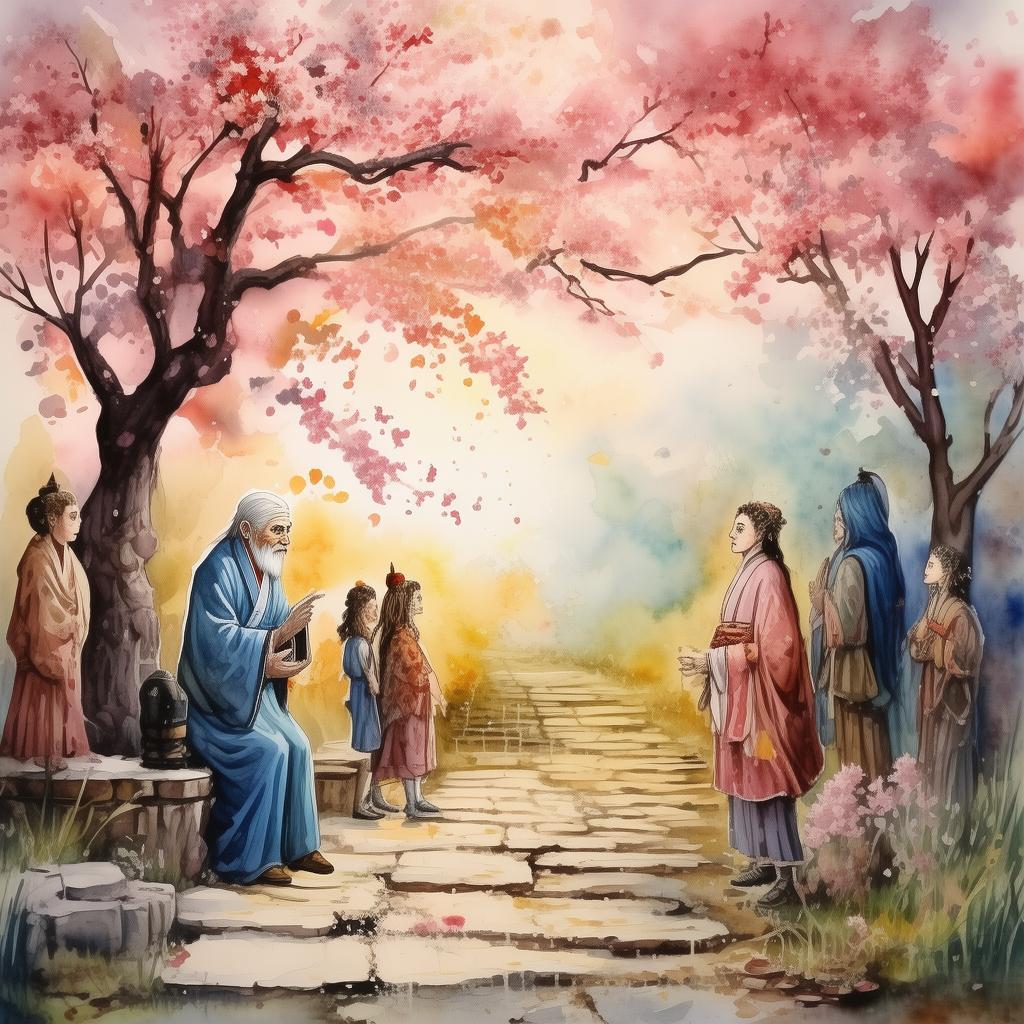
One evening, as Ming sat by a tranquil stream, a beggar approached him. The beggar's eyes were hollow and weary, and he spoke in a voice that was like the rustling of autumn leaves. "I have a tale that needs to be told, bard," he said. "A tale of loss, and of redemption."
Ming listened intently, for the beggar's words were like a melody that had been waiting for a bard to hear. The beggar spoke of a village that had been cursed, its children born with the gift of music but cursed to wander until their voices were heard by one who could set them free.
Ming was struck by the similarity of this tale to his own life. He decided to travel to the cursed village, hoping to find a way to ease the suffering of its people and, perhaps, to find some solace for his own heart.
As Ming reached the village, he was greeted by a people whose faces were marked with sorrow. The children there, young and old, sang melodies of woe and despair. Ming took up his lyre and played, hoping to inspire them with hope.
One girl, particularly, captivated Ming. Her name was Hua, and her voice was like a river breaking free from a frozen lake. Ming spent hours with Hua, teaching her the art of music and encouraging her to sing with her whole heart.
One day, as Ming was walking through the village, he stumbled upon an old, abandoned temple. Inside, he found an ancient scroll. Unfurling it, he read of a forgotten ritual that could lift the curse. The ritual required the voices of the children to be heard by a bard who had not known his parents.
Ming realized that this was his destiny. He had been wandering, searching for something he could not quite grasp, and now he knew what it was—the love of his parents, felt through the voices of others.
With Hua by his side, Ming traveled back to the village and performed a concert that would change their lives forever. His verses and songs filled the air, and the children's voices rose in harmony, lifting the curse that had bound them.
The villagers celebrated, and Ming and Hua were hailed as heroes. Ming felt a weight lifted from his shoulders, and he knew that he had finally found his place in the world.
As he returned to his wanderings, Ming carried with him the knowledge that his art was not just a way to entertain, but a means to heal and to find redemption. He continued to travel, to play his lyre, and to sing, always remembering the lesson he had learned in the cursed village—that the true power of music was in the hearts of those who played and those who listened.
The Lament of the Wandering Bard became a tale that was told throughout the land, a story of loss and redemption, of the power of music to bring people together, and of the enduring legacy of love and memory.
✨ Original Statement ✨
All articles published on this website (including but not limited to text, images, videos, and other content) are original or authorized for reposting and are protected by relevant laws. Without the explicit written permission of this website, no individual or organization may copy, modify, repost, or use the content for commercial purposes.
If you need to quote or cooperate, please contact this site for authorization. We reserve the right to pursue legal responsibility for any unauthorized use.
Hereby declared.
